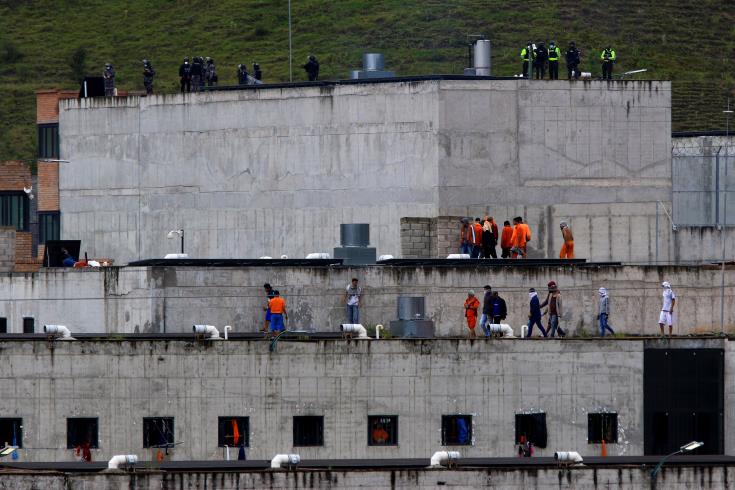Ecuadorian army and police forces regained control of the Guayaquil prison in the southwestern Latin American country on Tuesday, where clashes between inmates claimed the lives of 68 people late last week, the new director of the service announced. stores (SNAI).
The situation "is under control, we are intervening inside the wings of the detainees", the Director, Fausto Combo, told the press.
"The infamous corridor of death is under control," he added, referring to the section connecting the prison's wings.
"We are also clearing all the observatories they had (inmates) to monitor the facilities," he added. No violent incidents were reported during the operation. According to the authorities, three prisoners, who were being held hostage by their captives, managed to be released, are safe and sound.
The army and police - a total of about a thousand men - entered the perimeter of the prison on Monday, but avoided immediately invading the food wards. The large Guayaquil penitentiary turned into a theater of extreme violence between rival gangs on Friday and Saturday with 68 dead and 25 wounded, according to the official toll.
With knives, firearms and explosives, inmates attacked, after cutting off the power, their inmates in another wing of the prison, where the inmates are 8.500, or in other words the surplus population reaches 60%. The authorities stigmatized the "bestiality" and "barbarity" of the perpetrators.
Σύμφωνα με την αστυνομία, η νέα σφαγή συνδεόταν με τον “αγώνα για κυριαρχία” μετά την αποφυλάκιση την περασμένη εβδομάδα του αρχηγού μιας από τις συμμορίες στη φυλακή της Γουαγιακίλ. With the inmates divided into 12 wards, where at least seven gang members, often rivals, are kept separate, including those linked to the fearsome Mexican Sinaloa cartel and Jalisco Youth, the same jail in Guayaquil opened in late September. worst prison carnage in Ecuadorian history and one of the worst in Latin American history.
A total of 119 inmates were killed in those clashes - some were dismembered, beheaded, burned. Since the beginning of the year, the death toll in the riots in Ecuador's 65 prisons has risen to at least 320. authorities to combat it.
Between Colombia and Peru, the two countries that produce the largest quantities of cocaine in the world, Ecuador has become a platform for drug trafficking due to its porous borders, its dollarized economy and its major export ports, especially its administrative capital. the province of Waia and the economic capital of the country.
The government says there is a large increase in crime due to trafficking. On October 18, Conservative President Guillermo Lasso declared a "state of emergency" across the country to fight the crime, which has claimed the lives of at least 1.900 people since January.
He had already declared another "state of emergency" in prisons, announcing the deployment of army units. However, the Constitutional Court limited the duration of the measure, while forbidding the army to intervene in prisons. On Monday, Mr Lasso vowed to "mobilize all necessary measures", saying the country was "facing a very serious threat from abroad, from drug trafficking mafias" and was facing "one of the biggest crises in decades". inside".
Given the urgency of the situation, the army's intervention in the prisons on the side of the police did not seem to occupy the public debate in Ecuador yesterday. President Lasso also announced a "peace process" inside the prisons, mediated by civil society organizations, while promising to target drug-trafficking gang leaders.
RES-EAP
